Understanding the Web: Science, Politics, and Social Systems
The intricate relationship between science, politics, and social systems plays a crucial role in shaping the modern world. Each of these elements significantly influences the others, creating a web of interactions that can lead to both innovation and conflict.
- Science is often seen as the pursuit of knowledge and understanding of the natural world, utilizing empirical methods to test hypotheses and develop new technologies.
- Politics encompasses the structures and processes through which power and authority are exercised within a society, making decisions that affect the well-being of its citizens.
- Social systems, meanwhile, refer to the organized patterns of relationships and interactions among individuals and groups within a society.
These three domains, are deeply intertwined. Scientific advancements do not exist in a vacuum; they are often influenced by political agendas and societal needs. For instance, during the Cold War, governments invested heavily in scientific research as a means of demonstrating technological superiority.
This investment led to significant breakthroughs, such as the development of space technology and nuclear energy. However, these advancements were deeply rooted in the political context of the time, illustrating how science can be driven by the need for national security and geopolitical strategy.
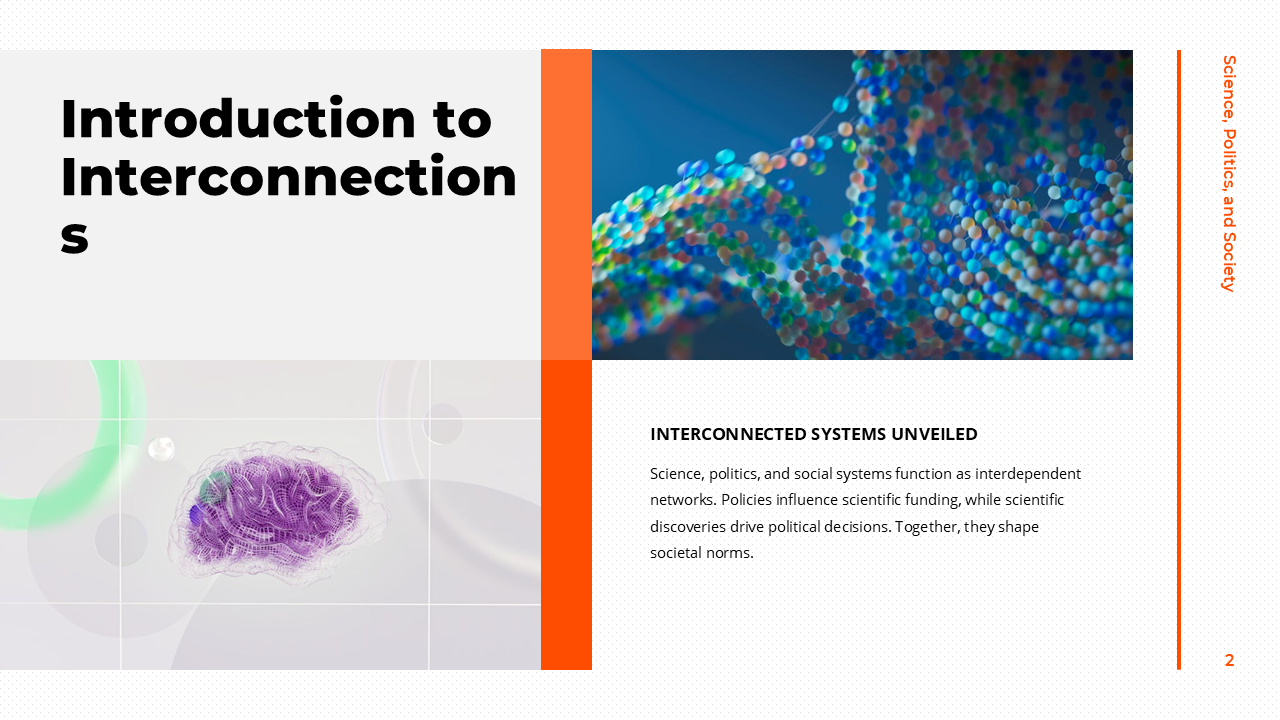
Furthermore, societal needs frequently inform the direction of scientific inquiry. Research in public health, for example, is often directed by the pressing health issues faced by communities. During a global pandemic, for instance, the prioritization of vaccine development is a direct response to societal demand for safety and health security. Thus, the interplay of science, politics, and social systems is dynamic and fluid, capable of sparking progress while simultaneously creating platforms for conflict and disparity. A comprehensive understanding of these interactions is essential for navigating the challenges faced by contemporary societies.
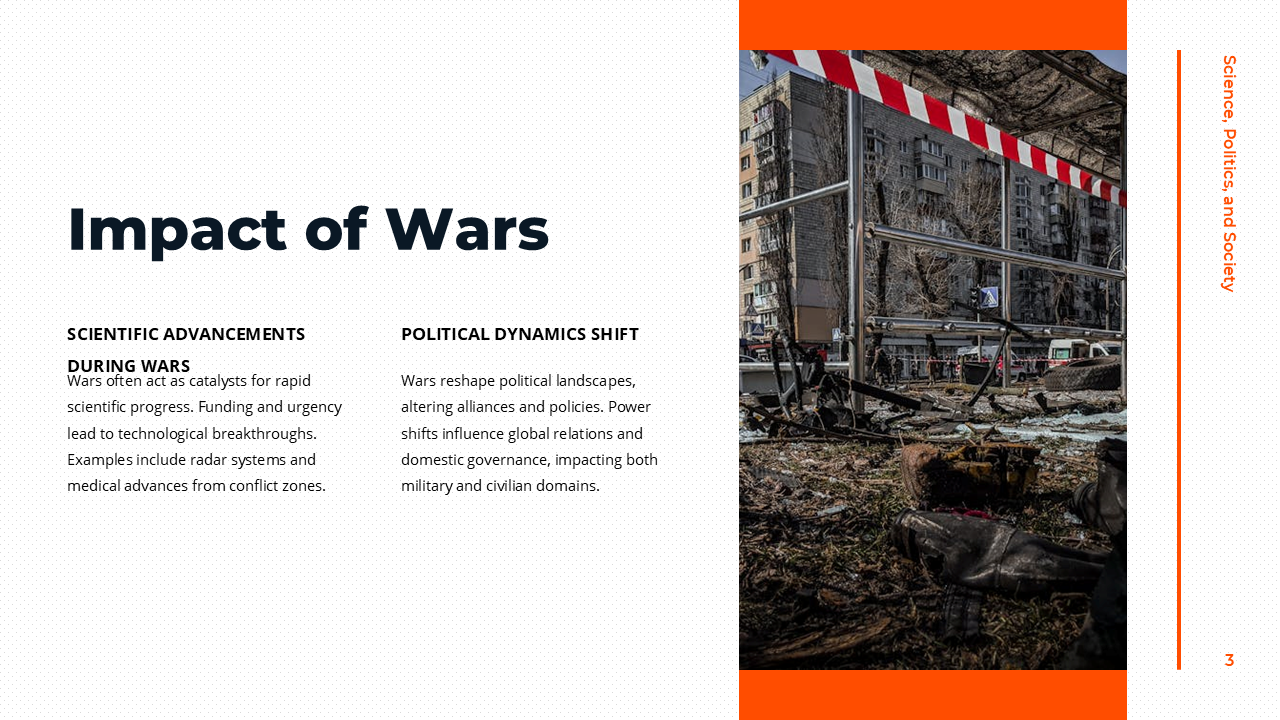

Historical Context: Wars as Catalysts for Change
Wars have acted as significant catalysts throughout history, for societal transformation, frequently influencing the trajectory of scientific inquiry and political structures. Various key conflicts have been pivotal in reshaping the landscape of science, politics, and social systems. The unfolding of World War I and World War II, for instance, heralded a period in which innovation surged in response to the demands of warfare. These global conflicts not only redefined national borders but also had profound implications on technological advancements and medical research.
Take World War II, for example; this war saw unprecedented advancements in technology and medicine driven by urgent military needs. The development of radar, the atomic bomb, and jet propulsion can all be traced back to war-induced urgency for technological superiority. Medical breakthroughs such as antibiotics were accelerated to address wartime mortality and injury. The urgency of these innovations often pushed researchers beyond the boundaries of traditional scientific thought, resulting in significant leaps that benefitted civilian applications post-conflict.
Moreover, wars have historically acted as transformative events that alter political power dynamics. The aftermath of conflicts has led to the emergence of new political ideologies and governance structures, often redefining the relationship between the state and its citizens. For example, the aftermath of World War I brought about the Treaty of Versailles, which not only initiated political realignment in Europe but also set the stage for societal movements that questioned established norms and governance practices.
Socially, wars have had the power to shift norms regarding gender roles and civil rights, particularly as populations adapt to the mass enlistment of soldiers and changes in workforce demographics during conflicts. The intersection of science, politics, and social systems during wars illustrates a complex web in which each element influences and catalyzes change across the others, leading to significant advancements and shifts that shape future societies.
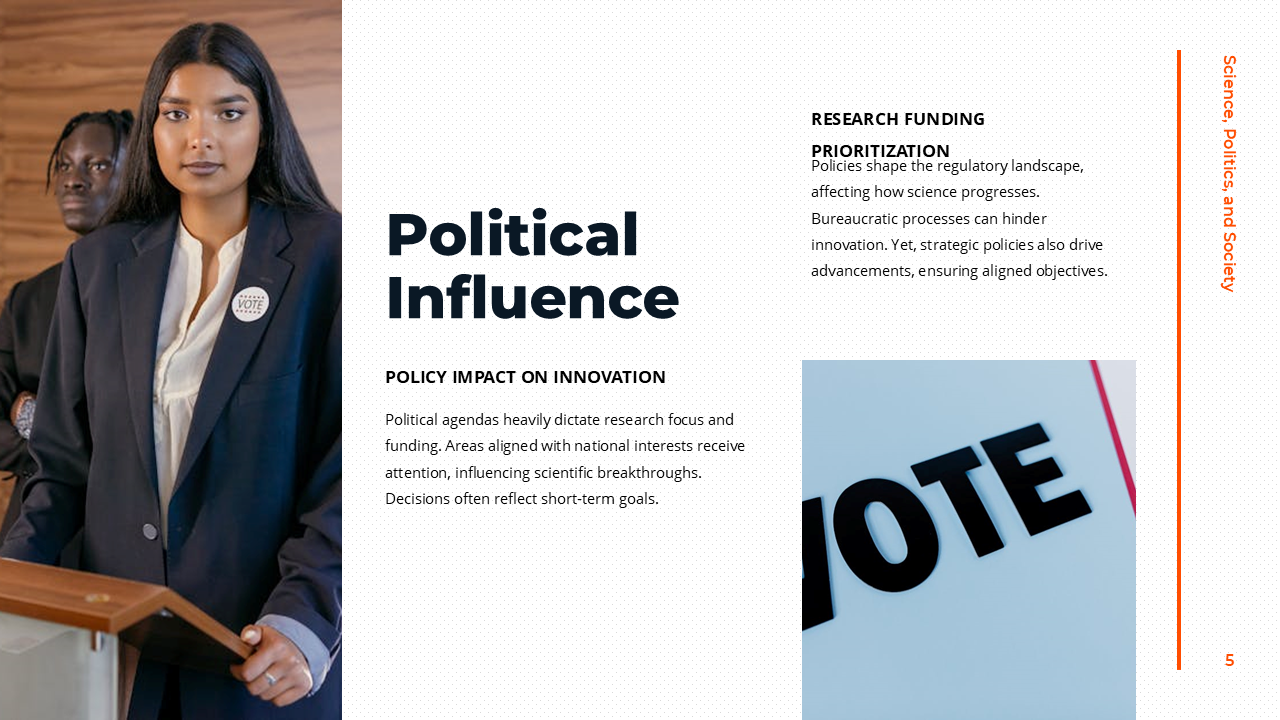

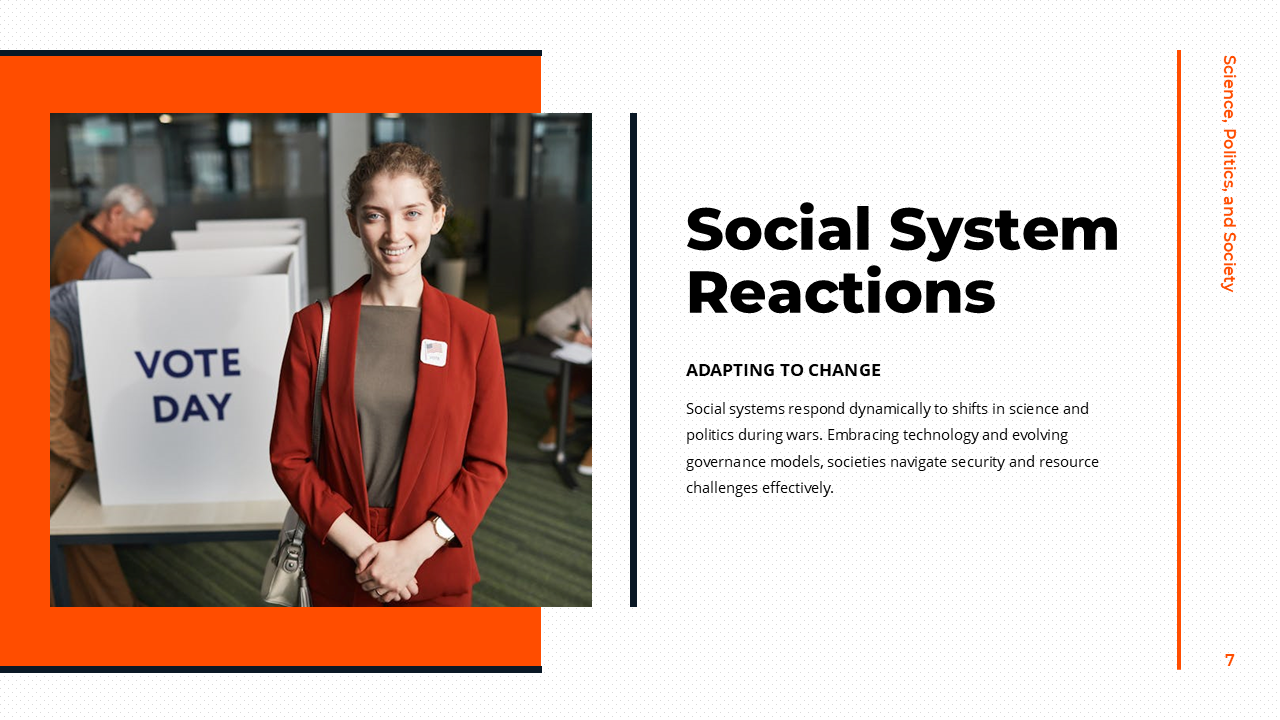
Contemporary Issues: Science and Politics in a Globalized World
In an increasingly interconnected global landscape, the interactions between science and politics have become paramount in addressing pressing contemporary issues. Climate change, public health crises, and rapid technological advancements illustrate that these challenges do not respect national boundaries and require responses that transcend political and social divides. The intersecting realms of science and politics are thus crucial for fostering effective collaboration and solutions to these pressing matters.
Climate change stands as one of the most daunting issues of our time, necessitating unified action among countries, scientists, and policymakers. The scientific community has consistently emphasized the urgency of addressing climate change, highlighting the necessity for innovative technologies and sustainable practices. However, the political landscape often complicates efforts to implement these solutions, as different nations possess varying interests and priorities. The discordance in political will can hinder international agreements such as the Paris Agreement, which aims to mitigate the effects of climate change on a global scale.
Public health demonstrates another salient issue where science and politics intersect. The recent COVID-19 pandemic underscored the importance of cooperative approaches in managing health crises. While science provided the tools for understanding and combatting the virus, political decisions influenced the efficacy of these interventions. Vaccine distribution, public health messaging, and resource allocation were all shaped by political considerations, showcasing the critical need for an integrated approach that combines scientific expertise with sound political judgment.
Furthermore, the rapid advancement of technology presents new ethical dilemmas and regulatory challenges that must be navigated collaboratively. Issues concerning data privacy, artificial intelligence, and biotechnological innovations highlight the obstacles that arise when science and politics diverge. Wars and geopolitical tensions can exacerbate these complexities, as scientific collaboration often becomes strained under competing national interests. The need for global cooperation in science is increasingly vital, especially as we face the ethical implications of scientific advancements that could significantly alter societal structures.
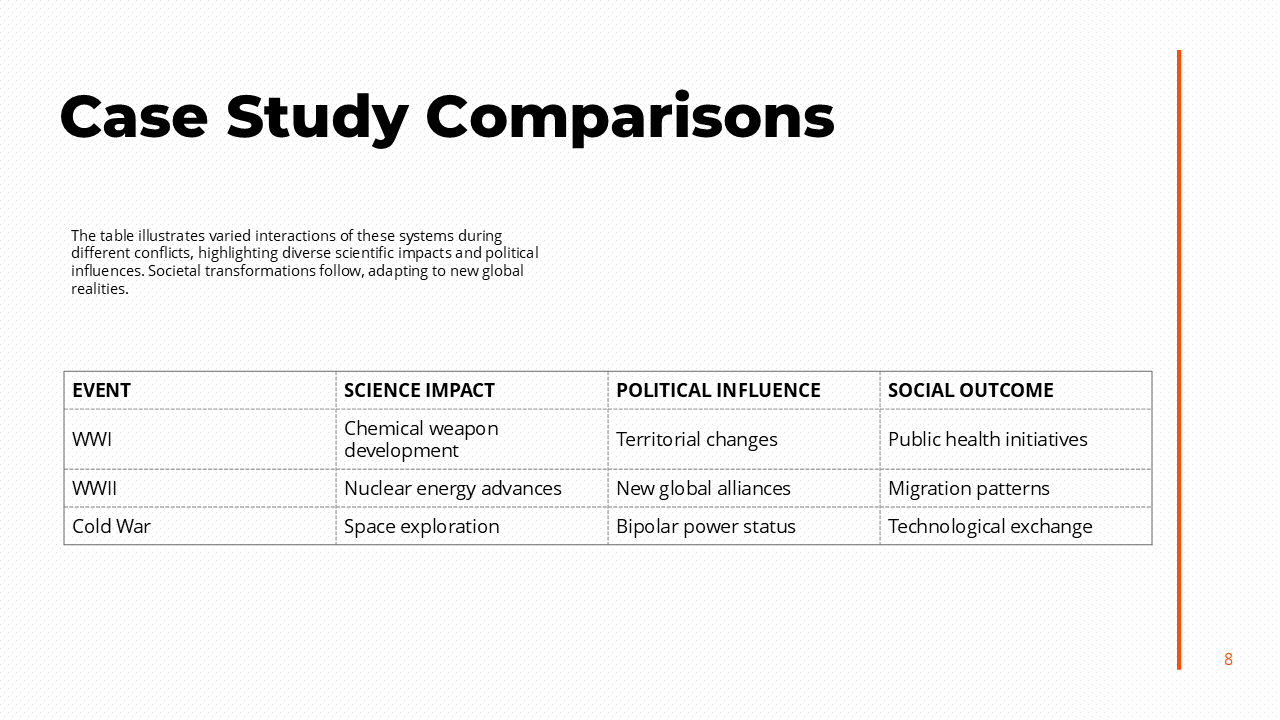
The Future Landscape: Navigating the Complexities of the Web
The future landscape shaped by the intricate interplay of science, politics, and social systems is likely to present a myriad of challenges, particularly influenced by the ramifications of warfare. As emerging technologies continue to evolve, they will undoubtedly redefine the parameters of conflict. The dependence on advanced weapons systems and artificial intelligence in military strategy raises critical ethical considerations and questions about accountability. A future dominated by technology in warfare necessitates a reevaluation of international laws governing armed conflict; current regulations may be insufficient to address the rapid advancements in weaponry.
Moreover, wars often create significant barriers to scientific collaboration. When nations are embroiled in conflict, their scientific communities can be cut off from vital exchanges of knowledge, severely hindering progress in fields such as medicine, environmental science, and engineering. Efforts to counteract this may require innovative approaches to diplomacy, where scientific endeavors are prioritized as a vehicle for peace, fostering trust among nations despite political tensions. Reestablishing channels for collaboration will be essential in addressing global challenges, including climate change, public health crises, and technological disparity.
To mitigate the complexities arising from wars, a multifaceted strategy is necessary. This could involve promoting policies that prioritize peaceful coexistence and conflict resolution, alongside mechanisms to facilitate cooperation across disciplines. Educational initiatives designed to build interdisciplinary understanding can cultivate awareness of the effects of warfare on societal structures, encouraging a more informed citizenry. Furthermore, engaging stakeholders from various sectors, including government, academia, and the private sector, can lead to innovative solutions that address the root causes of conflicts.
Ultimately, a commitment to fostering cooperation and understanding across scientific and political domains is imperative. This collaborative approach will not only enhance our capacity to navigate future conflicts but will also pave the way for sustained progress and prosperity in an increasingly interconnected world.






Understanding The Final Syllabus Of Science For Global Challenges
[…] The Interplay of Science, Politics, and Social Systems: The Role of Wars […]
RobertArisk
На данном сайте у вас есть возможность приобрести онлайн мобильные номера различных операторов. Они могут использоваться для подтверждения аккаунтов в разных сервисах и приложениях. В каталоге доступны как долговременные, так и одноразовые номера, которые можно использовать для получения SMS. Это удобное решение для тех, кто не хочет использовать основной номер в интернете. аренда номера телефона Процесс покупки очень удобный: определяетесь с необходимый номер, оплачиваете, и он будет готов к использованию. Попробуйте сервис прямо сейчас!